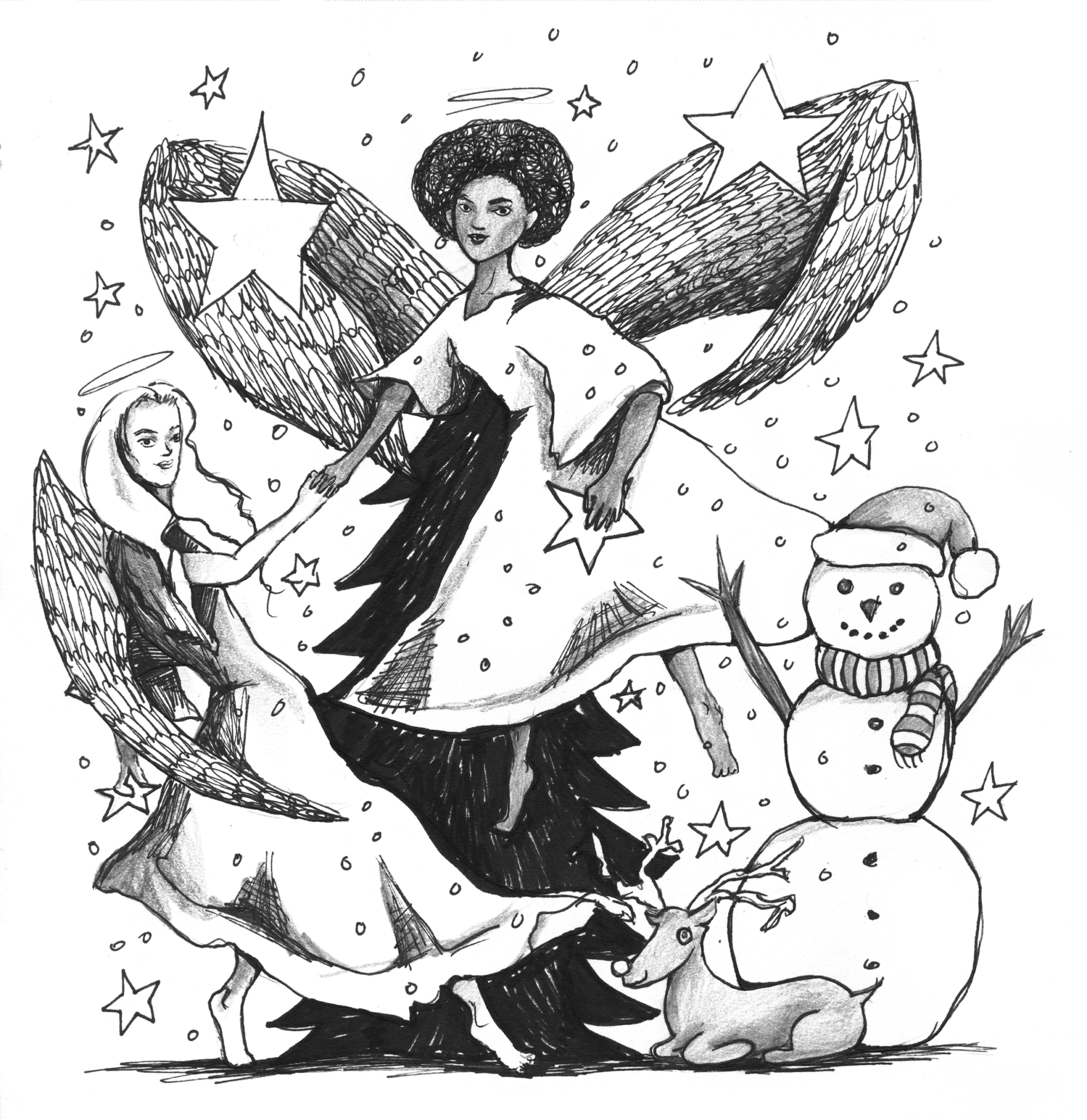
Every year on Nov. 1, as jack-o’-lanterns go down and turkey decorations go up, I begin my annual two-month odyssey down Santa Claus Lane. As golden autumn leaves swirl outside the library, I pop in my earbuds and open up the Spotify app on my phone, risking disapproval from both my community and my cell phone provider. The app features not just one, but dozens of different Christmas music stations, ranging from hip-hop hymns to kitschy carols. I sit back and relax as I listen to cloying takes on “Jingle Bells” and “Rudolph the Red-nosed Reindeer.” The songs, truth be told, are rather saccharine. But for me, flaunting societal taboos by listening to the holiday tunes is only just. Like all true Americans, don’t I deserve to have dark, snowy December transformed into “The Most Wonderful Time of the Year?” Of course I do, though I’ll never actually celebrate the holiday that has inspired “Santa Baby” and “Frosty the Snowman.” After all, I’m Jewish.
I was raised by New York Jews who kept menorahs, Torah finials and books on the Talmud in the living room and bagels in the kitchen. My Jewishness is an innate part of my identity: I can remember my confusion when my kindergarten classmates didn’t understand the Yiddish words intermixed with my fledgling English. And yet, my musical proclivities at the end of autumn defy all reasonable expectations.
Growing up, I rode a large yellow school bus each day to my local elementary school. The school bus was where I was inducted into the magical world of Christmas music. The driver’s favorite Lite FM station would flip a proverbial “Christmas switch” at some point before Thanksgiving, and flood the bus with strains of Dean Martin and Ella Fitzgerald. I soon fell in love with the upbeat tunes, played almost ad nauseam five days a week. But as soon as the bus dropped me off at my house, where the sounds of Bach and Mozart rang on the stereo, I would pretend to despise the omnipresent music of the holiday season; listening and, God forbid, enjoying “Jingle Bells” was unacceptable for a nice Jewish Boy like me.
We Jews revel in our own separateness. We are The Chosen People, the ones who have survived five thousand years, against all odds. Assimilation is anathema to our identity. Celebrating one of Christianity’s most important holidays would mean giving in to the “corrupting” forces of cultural conformity and threatening the chronically endangered Jewish identity.
None of this means, of course, that we don’t like a good, fun holiday. Some Jews admit to feeling Christmas envy in December; the rest are lying. Christmas in modern America is the epitome of joyousness; implicitly, those excluded from Santa’s great winter romp are left socially isolated and marginalized. Sure, we have Hanukkah as a consolation prize. But “the festival of lights” is really just an excuse to eat our feelings by gorging on mountains of fried food.
Hanukkah’s false holiday status, after all, is an expression of Jewish social insecurity. American Jews, seeking a cure for their children’s jealousy, turned a violent, obscure and widely misunderstood rebellion into an incandescent holiday complete with spinning dreidels and copious amounts of chocolate money. But Hanukkah’s eight days are really just a palliative treatment, skirting the much deeper issues of social exclusion Jews are forced to confront each December. Christmas forces me to ask, “How can I truly be part of American culture if I don’t celebrate America’s favorite holiday?”
I have resolved this dilemma by choosing to believe that Christmas in America is a holiday for all. There’s no commandment in the Torah that gentiles have a monopoly on good will and cheer during the darkest time of the year. Besides, the most festive parts of Christmas have almost nothing do with Christianity. The tree, the lights and the food are all remnants of pagan worship of the winter solstice. This exaltation of life is expressed in traditional carols and more recently in popular song. In fact, my favorite Noel tunes are those that celebrate the shared pleasures of the season — the clarifying cold, the purifying snow, the restorative warmth of a family hearth — rather than faith in the Christmas miracle. “Let it Snow” inevitably blares from my speakers the first day glistening snowflakes reinvent the dreary winter landscape. “The Christmas Song,” for me, conjures nostalgic visions of familial comfort — chestnuts roasting on an open fire, a turkey that “help[s] to make the season bright.” Most Americans would be very surprised to learn that Jewish composers wrote both of these songs, along with many of the most famous classic Christmas tunes — including “White Christmas,” “Silver Bells” and “Frosty the Snowman.” I don’t see irony in this strange twist of fate. Instead I identify with the songwriters’ dilemma: either assimilate into the culture they yearned to be accepted into and lose much of their identity or remain religiously and culturally distinct, but socially marginalized.
My love of Christmas music is not really a transgression or even a guilty pleasure. Listening to “Baby It’s Cold Outside” doesn’t violate any biblical commandments — unlike my consumption of fried pork dumplings on Dec. 25. Instead, I see it as a safe exploration of another American sub-culture. In our nation’s current trumped-up climate of social, economic and religious divide, we should have a holiday to bring all of us together, no matter the differences in our backgrounds. This Jew nominates Christmas.
Isaiah Schrader | isaiah.schrader@yale.edu .







